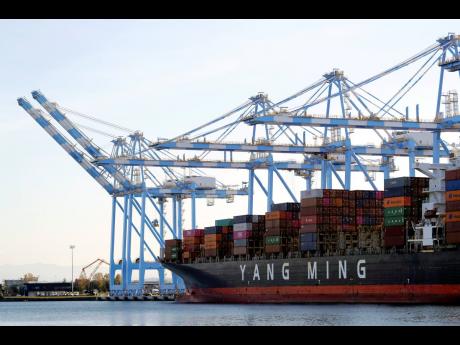Elizabeth Morgan | Impact of population issues on foreign trade
The COVID-19 pandemic is highlighting some issues that I had not fully explored. One of these is the impact of population issues, such as demographic shifts, on foreign trade. COVID-19’s ravishing of Italy and Spain in Europe brought to the fore the issue of Europe’s ageing population.
The average age in Italy is 46 years and among European Union (EU) members, including the United Kingdom (UK), it is 43. Only Japan, with an average age of 47, has an older population. On average, European women are having fewer than two children, which is below the required replacement rate of about 2.3, according to the United Nations (UN).
Between the USA and Canada, the average age is about 41. With its unique population policy, the average age in China is now 38 years.
The countries of the Caribbean Community (CARICOM), with a population of about 19 million, has an average age of 32 years. The more youthful populations are now in India, average age 27 years, and in Africa the average age is 20. It is, of course, evident why the EU, UK, China and others are focused on Africa for future investment and trade. The UN states that in coming years, the population growth rate will be the highest in Africa. Some of the fastest-growing economies will also continue to be in Africa.
Population is relevant to trade because people provide the entrepreneurs, labour and consumers. It also influences economic growth.
Between 1996 and 2001, the trade and labour issue was considered at the World Trade Organization (WTO) and the International Labour Organization (ILO), as there was an attempt to have the WTO address adherence to the ILO’s Core Labour Standards. It was felt that some developing countries in Asia and Latin America, specifically, were not applying these labour standards, which include allowing membership to trade unions, improving working conditions, paying fair wages, and ending discrimination, forced and child labour. Thus, they had an unfair advantage in production and trade.
With opposition from developing countries, labour issues remained fully with the ILO. Trade unions in Jamaica and other CARICOM countries did not support the general developing country position, as they felt that CARICOM countries were in compliance with most of the Core Labour Standards and their workers were also at a disadvantage.
At the WTO’s 2017 11th Ministerial Conference (MC11) in Buenos Aires, the issue of trade and gender was raised with the adoption of a Joint Declaration on Trade and Women’s Empowerment. Trade and gender has been on the agenda of the United Nations Conference on Trade and Development (UNCTAD), the International Trade Centre (ITC) and UN Women. I am not aware of discussions in the WTO on other population issues involving the UN Population Fund.
LIST OF IMPACTS
In my research, I have found work on the impact of population issues on global trade. Recently, there was a special report in the Financial Times titled ‘How demographic changes will drive world trade’.
Population issues impacting trade, which include the following, do arise in the UN Sustainable Development Goals:
• Ageing – declining populations, low fertility, shrinking labour force, inability to transition into new skills/use of technology, and gains in longevity.
• Youth – high percentage of the population aged 18-45, sizeable labour force, fairly well educated and technology savvy, and concentrated in poorer countries.
• Gender – accommodating women in the workforce and as entrepreneurs – providing maternity and sick leave, flexible working hours, equal pay.
• Income – strength of the middle class, raising standards of living, and purchasing power.
• Migration – movement of labour from high population, low-income regions to lower population, high-income regions – now a critical and contentious issue.
• Automation – the application of machinery/robots and technology in production processes and trade.
• Social issues – improving health, education and training.
These are important issues for CARICOM member states which are experiencing: declining fertility rates; increasing longevity/ageing; continuing high immigration levels, particularly among professionals and skilled workers; shrinking labour force; persisting low productivity; spiralling import bills; sluggish exports; inability to diversify trade in goods and services; and continuing need to improve education and training, and investment flows.
Among other things, we in the Caribbean should pay more attention to the impact of these population issues on foreign trade in the post-COVID-19 recovery period.
Elizabeth Morgan is a specialist in international trade policy and international politics. Email feedback to columns@gleanerjm.com.

